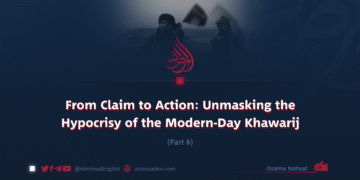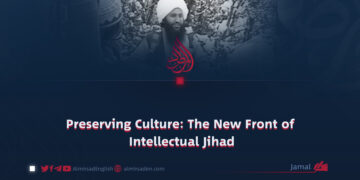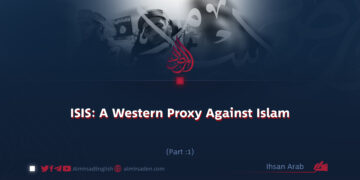Part 24
Ehsan Arab
Undermining the Ummah’s Trust in the Caliphate
In modern Islamic history, few concepts have carried as much symbolic significance and spiritual resonance as the re-establishment of the Islamic Caliphate. For generations, this ideal has represented unity, justice, and the sovereign implementation of Shariah. It has long served as a focal point for Islamic revivalist movements and remains a cherished aspiration in the hearts of countless Muslims. The Caliphate is envisioned as a divinely guided order rooted in moral clarity and collective dignity.
In recent years, however, this noble vision has suffered a devastating setback with the emergence of a group calling itself ISIS. The damage it caused was not limited to attacks by external enemies of Islam. It also came from within, at the hands of those who falsely claimed to defend and restore the Caliphate.
When ISIS declared the return of the Caliphate in 2014 and appointed Abu Bakr al-Baghdadi as “Caliph of the Muslims,” it initially presented itself as a movement committed to reviving the glory and authority of Islamic civilization. Many sincere and idealistic Muslim youth from around the world were drawn to what they believed was a genuine opportunity to establish a just and righteous Islamic society. However, the reality behind ISIS’s claims soon became tragically apparent. The group’s behavior bore no resemblance to the values it professed.
The group quickly revealed its true nature through acts of mass execution, indiscriminate violence, widespread takfir of fellow Muslims, the destruction of mosques, the targeting of both Sunnis and Shiites, and the erasure of Islamic heritage. Its public shaming of respected scholars and unchecked brutality stripped away any credibility in its rhetoric. Far from embodying the principles of a legitimate Caliphate, ISIS distorted and disfigured the very idea it claimed to uphold.
Rather than restoring the Caliphate as a beacon of divine justice and Muslim unity, ISIS turned it into a symbol of bloodshed, tyranny, and extremism. Its behavior had nothing in common with the Caliphate envisioned in classical Islamic tradition or the sincere hopes of the Ummah. In fact, one of the group’s most damaging legacies was its role in undermining the Muslim community’s trust in the Caliphate as a righteous and attainable goal.
Today, the mere mention of the Caliphate often conjures images of ISIS’s atrocities. What once represented justice, brotherhood, and the application of divine law is now commonly perceived, even among Muslims, as a symbol of terror and oppression.
Western media played a central role in reinforcing this distorted perception. By amplifying ISIS’s actions and portraying the group as the definitive example of a modern Caliphate, they succeeded in recasting the entire concept as synonymous with violence and extremism. This narrative has taken root not only in global discourse but within the Muslim world itself.
Although ISIS claimed to revive the Caliphate, it ultimately carried out one of the most egregious betrayals of that sacred concept. By defiling a revered ideal with brutality and fanaticism, the group created a pretext for regimes across the Muslim world to suppress any movement that speaks of Islamic governance. Today, even the most sincere efforts to promote Muslim unity or advocate for Shariah-based systems are often met with suspicion, hostility, or outright repression.
As a result, the discourse around the Caliphate has become clouded with anxiety and mistrust. What was once a hopeful vision of spiritual liberation and ethical governance is now tainted by the horrors ISIS left in its wake.
In truth, the ISIS project was never a genuine attempt to restore the Caliphate. It was a calculated deception. Before it ever inflicted harm on the enemies of Islam, ISIS inflicted deep and lasting wounds on the Ummah. It misled the youth, sowed division, and, most tragically, shattered the confidence of Muslims in one of their most sacred aspirations.



















































